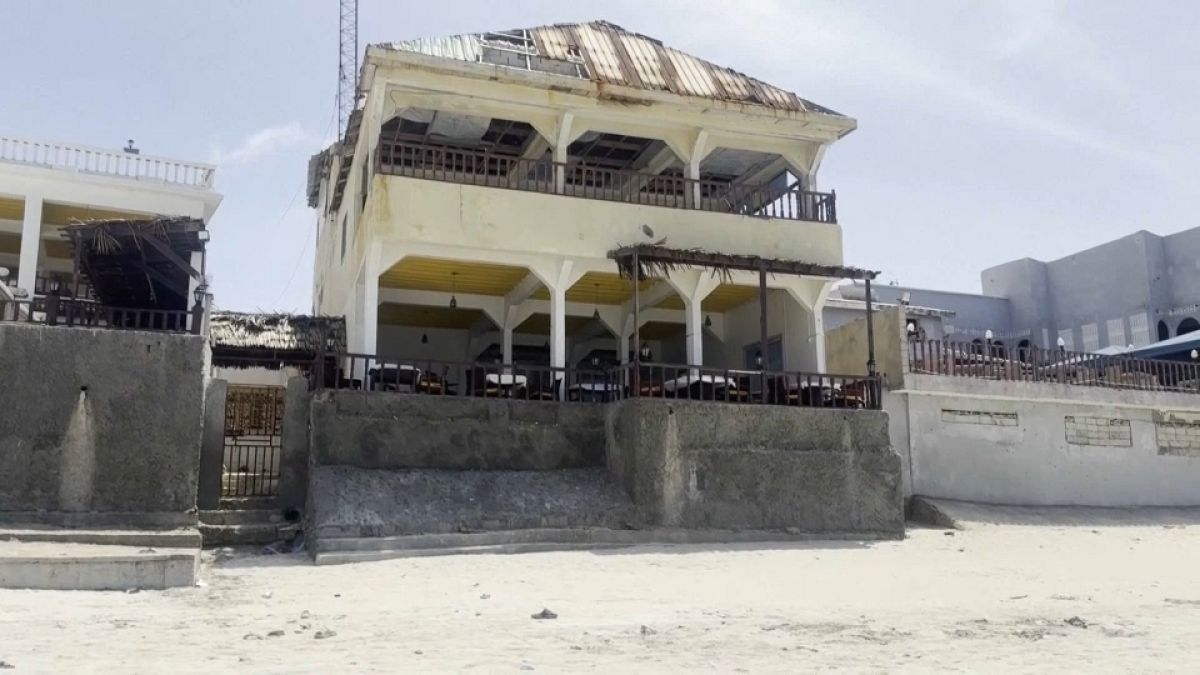At least 32 people have been killed and 63 others injured in a recent attack on a hotel on Lido Beach in the Somali capital of Mogadishu. Al-Qaeda’s East Africa affiliate, al-Shabaab, claimed responsibility for the attack through their radio system. Security forces quickly responded to reports of an explosion and gunfire at the hotel. Witnesses reported seeing an attacker wearing an explosive vest who detonated a suicide bomb near the beach-view hotel. One soldier and several civilians were reported dead, while security forces were able to neutralize the attackers.
This incident is just one of many attacks carried out by al-Shabaab in Somalia. The Lido Beach area has been a frequent target for militants. Last year, a similar attack resulted in the deaths of nine people. In a separate incident, seven people died after a passenger vehicle hit a roadside bomb 40 kilometers from the capital. Al-Shabaab still controls parts of southern and central Somalia, continuing to carry out attacks in Mogadishu and other areas. The militant group also extorts millions of dollars annually from residents and businesses in an effort to impose an Islamic state.
Somali President Hassan Sheikh Mohamud declared a “total war” on al-Shabaab last year as the country takes steps to improve its security. The recent hotel attack occurred just as Somalia commenced the third phase of the drawdown of peacekeeping troops under the African Union Transition Mission. Despite ongoing efforts to combat the militant group, al-Shabaab remains a significant threat in Somalia, posing dangers to residents and businesses in the region.
The attack on the hotel in Mogadishu serves as a reminder of the persistent threat posed by al-Shabaab in Somalia. The militant group continues to carry out violent attacks, targeting civilians and security forces alike. The recent incident resulted in multiple casualties, including one soldier and several civilians. The ability of al-Shabaab to strike in heavily guarded areas like Lido Beach highlights the challenges faced by security forces in combating the group.
The Somali government has been working to improve security in the country, declaring a “total war” on al-Shabaab and taking steps to address the ongoing threat. However, the recent attack underscores the continuing danger posed by the militant group. Al-Shabaab’s ability to extort funds from residents and businesses highlights the group’s ongoing influence in the region. The Somali government, with the support of international partners, will need to redouble its efforts to combat al-Shabaab and improve security for all Somalis.
As Somalia continues to grapple with the threat of al-Shabaab, incidents like the recent attack on the hotel in Mogadishu highlight the challenges faced by the country in achieving lasting peace and stability. The ongoing violence perpetuated by al-Shabaab underscores the need for continued international support in combating the militant group. The recent attack serves as a stark reminder of the toll that terrorism takes on communities in Somalia, and the importance of ongoing efforts to address the root causes of extremism in the region.










